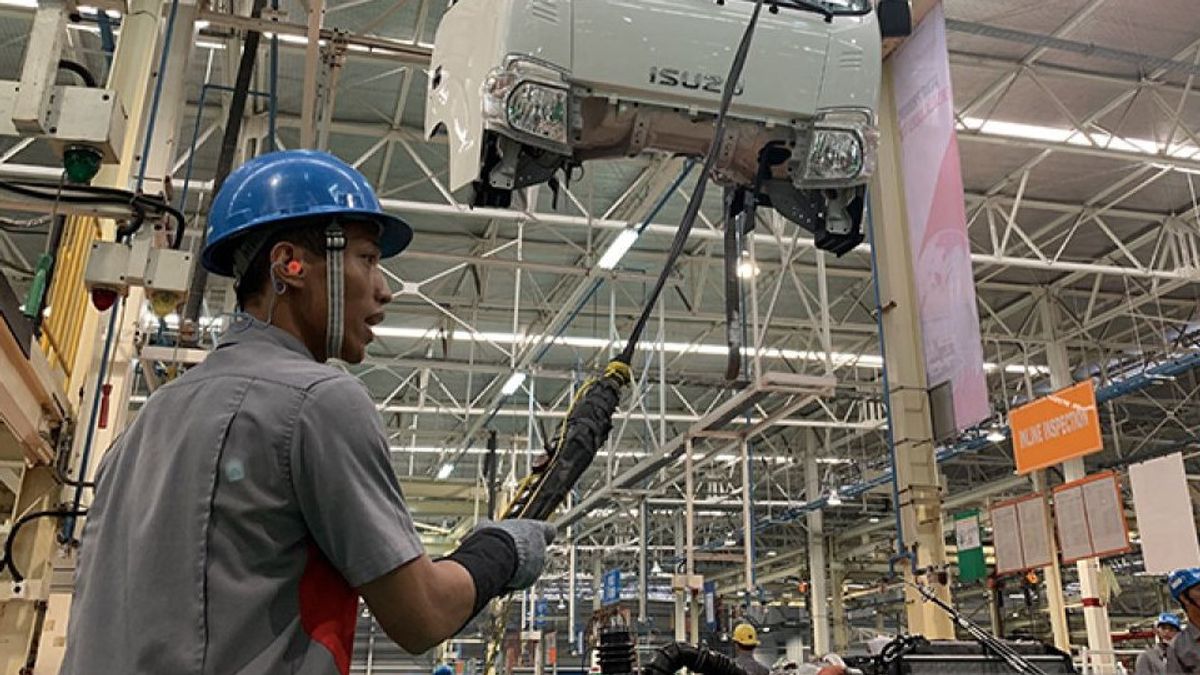JAKARTA - Environmental economist IPB University Eka Intan Kumala Putri stated that the circular economy in the industry will have a significant impact on state revenues so that industry circles including the steel industry are expected to implement it.
"The circular economy is still an appeal, not yet mandatory or mandatory, if the volatile-voluntary is accumulated, including from the steel industry it will be quite significant for state revenue," he said in Jakarta, quoted from Antara, Wednesday, March 13.
In addition, he added, the implementation of the circular economy also has a positive impact on commitments to reduce greenhouse gas emissions so as to support the net zero emission program.
Terkait hal itu Eka menilai positif, beberapa industri baja dasar kapital yang sudah menerapkan ekonomi sirkular, salah satunya PT Gunung Raja Paksi dengan menghasilkan green aggregate dari slag pinding.
The green aggregate can be used for various fields such as road construction, the Batakko and paving block industry, ready mix concrete, and so on.
According to him, the steel industry can be categorized as implementing a circular economy because it has recycled its waste in more than one stage.
"It is impossible to waste zero. But in principle, the circular economy will minimize wasted waste," he said by telephone.
Eka added that in addition to having a positive impact on state revenue, the circular economy is also profitable for companies and the environment.
From the company side, of course, it will get intangible value by reducing emissions, company products will have brands in the community as sustainable products, the company will also earn income from processed products.
"The company will also get value. For example, participating in proper or certification, from the business side it will be guaranteed," he said.
Meanwhile, from an environmental perspective, the circular economy will reduce waste, pollution, and also wasted emissions.
He said that the implementation of a circular economy is not easy, especially since technology for recycling is currently still expensive, but over time, when technology has been done a lot, technology costs will decrease.
"There must be initiation from companies that are capital-intensive, for example the steel industry with large capital, to try the technology. So that other companies also replicate," he said.
SEE ALSO:
Previously, Deputy for Economic Affairs of the Ministry of National Development Planning/Bappenas Amalia Adiningrat Widyasanti said the circular economy was the main pillar towards Indonesia Gold 2045.
"The massive implementation of the circular economy can open new opportunities for future economic growth," he said.
According to him, the implementation of a circular economy can provide great benefits for Indonesia, both economically and environmentally. The circular economy can encourage sustainable economic growth, create new jobs, and reduce greenhouse gas emissions.
The English, Chinese, Japanese, Arabic, and French versions are automatically generated by the AI. So there may still be inaccuracies in translating, please always see Indonesian as our main language. (system supported by DigitalSiber.id)















